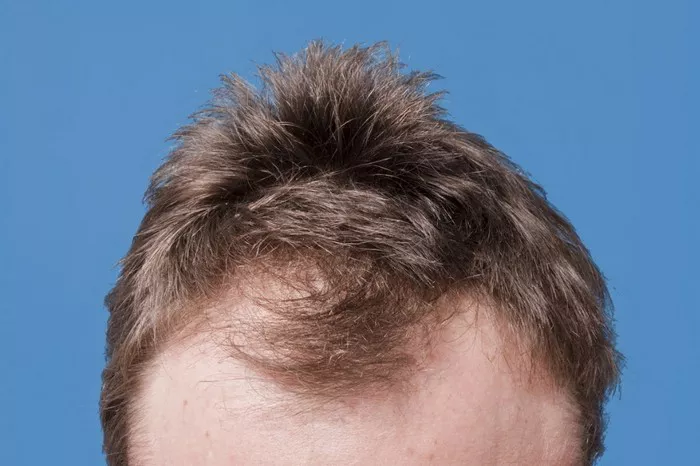A widely-used drug for promoting hair growth and addressing thinning hair, minoxidil, may be experiencing shortages in certain pharmacies, recent research reveals.
Minoxidil, a daily oral pill, is vital for individuals seeking to maintain their progress in hair restoration. An interruption in treatment could potentially reverse the gains made in hair regrowth, says Dr. Adam Friedman, Professor and Chair of Dermatology at George Washington University.
Minoxidil is often prescribed for androgenetic alopecia, commonly known as male or female pattern hair loss, a condition affecting nearly half of men and a quarter of women by age 50, as stated by the American Osteopathic College of Dermatology.
Over the past months, Dr. Friedman observed that patients in the Washington, D.C. area were encountering challenges in obtaining 30-day supplies of minoxidil from their local pharmacies.
In response to this issue, Dr. Friedman and his colleagues conducted a survey earlier this month, reaching out to 277 pharmacies in the District of Columbia, Maryland, and Virginia to inquire about their minoxidil stocks. The results revealed significant shortages.
Only 40% of the surveyed pharmacies had the capacity to immediately fulfill 30-day prescriptions for minoxidil, specifically in the dosage used for hair loss treatment (2.5 milligrams). The findings have been published in the Journal of Drugs in Dermatology.
The exact cause of this shortage remains unknown. Dr. Friedman suggests that increased attention through mainstream and social media could have led to a surge in prescriptions, potentially contributing to the shortage.
The survey did not determine the duration of the wait for patients to receive their medication or the potential restocking timeline for these pharmacies.
Dr. Friedman expresses concerns about this lapse, saying, “A substantial number of our patients are not going to be able to access minoxidil because of these shortages. It’s a significant problem.”
Understanding Minoxidil and its Mechanism:
Minoxidil has a long history of use as a drug to treat high blood pressure by dilating blood vessels. Interestingly, during its initial testing in the 1960s, patients reported an unexpected side effect – excessive hair growth.
While the precise way minoxidil stimulates hair growth remains uncertain, medical experts believe it enhances blood circulation around hair follicles.
By the late 1980s, minoxidil was incorporated into topical hair loss treatments like Rogaine. However, it became evident that applying the treatment topically daily was less effective than taking it orally.
Oral minoxidil, when ingested, can stimulate hair growth across the body, including areas like the chin and arms. This may not be desirable for many patients, especially women.
Dr. Loren Krueger, an Assistant Professor in the Dermatology Department at Emory University School of Medicine, hails oral minoxidil as a “game changer” in the realm of hair loss treatment and restoration, citing it as a low-risk, high-reward medication.
Addressing the Shortages:
The apparent difficulty in accessing oral minoxidil, which is not FDA-approved for treating hair loss, may be region-specific rather than a nationwide issue. While the FDA does not list minoxidil as a drug in short supply, there have been sporadic reports of shortages over the past year.
Michael Ganio, Senior Director of Pharmacy Practice and Quality at the American Society of Health-System Pharmacists, an organization representing pharmacies nationwide, noted that it’s not surprising for outlets to not always stock 30-day supplies of minoxidil.
Given that minoxidil is primarily used to treat high blood pressure and is not typically used in emergency medical situations, wholesalers can generally provide the drug to pharmacies within days. Patients in urgent need may need to contact multiple pharmacies to fill their prescription.
Dr. Friedman emphasized the significant impact of hair loss on a person’s quality of life, saying, “Hair loss is not life-threatening, but let’s not underestimate the impact on quality of life. When people lose their hair, it is extraordinarily disabling.”


